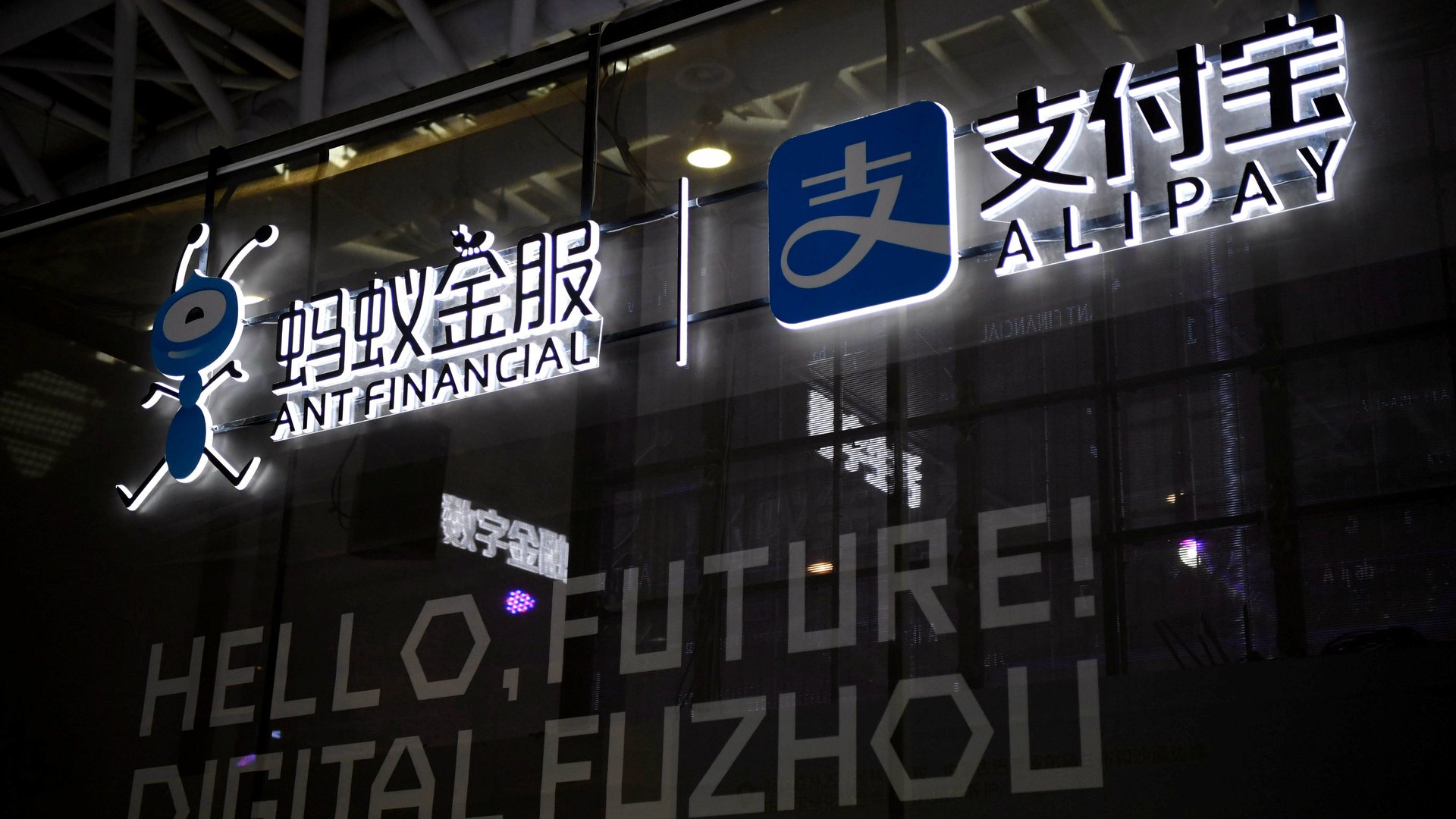China no longer runs the world’s largest money market fund
China’s flagship money market fund is no longer the world’s largest. Ant Financial’s Yu’e Bao, which means “leftover treasure,” has ceded this title to two American funds. The shift comes as Chinese authorities wrestle with the country’s fast-growing investment industry.


China’s flagship money market fund is no longer the world’s largest. Ant Financial’s Yu’e Bao, which means “leftover treasure,” has ceded this title to two American funds. The shift comes as Chinese authorities wrestle with the country’s fast-growing investment industry.
Yu’e Bao (pronounced “Yoo Uh Bow”) took the global lead for assets under management in 2017, but has recently fallen behind money market funds managed by JPMorgan and Fidelity, according to data from Fitch Ratings. (The Chinese fund was launched by Tianhong Asset Management, which is 51% owned by Ant Financial.) The fund has $157 billion in assets under management as of December, compared with around $268 billion in March 2018.
Yu’e Bao shocked banking executives around the world with its immense growth. It started when the widely used payment service Alipay (operated by Ant Financial, an affiliate of Alibaba at the time) added the money market fund to its app. The fund was designed for spare cash, and Chinese consumers began using it like a checking account. They are able to pay for anything, from haircuts to hot pot dinners, directly out of their high-yielding investment holdings, seamlessly and easily.
Yu’e Bao was reportedly called a “blood-sucking vampire” by a commentator on state-run television. Customers flocked to the fund because it was so easy to use and they were able get better interest rates than their bank accounts offered. Around a third or more of China’s population now uses it. That contrasts with JPMorgan’s US Government Money Market Fund, the world’s largest, which mostly serves institutional clients.
Money market funds are considered pretty safe—they typically invest customers’ funds in high quality assets like government bonds or other highly rated institutions. But they’re not as safe as savings accounts, which in most countries come with a government guarantee up to a certain threshold (in the US, it’s $250,000). When legions of investors pour money into investments they think are safer than they are, a hiccup in that market can cause a panic, sending shockwaves through the financial system.
While many Chinese customers may not realize that Yu’e Bao is riskier than a savings account, the government has. Officials began tightening regulations (link in Chinese) on money market funds in 2017, through things like limits on lower-quality assets and requiring funds to buy more liquid (easily traded) investments. While Yu’e Bao’s funds under management are growing again, the sector for overall Chinese money market funds has declined somewhat since the middle of 2018.
As concerns about the sheer size of Yu’e Bao grew, Ant Financial adopted voluntary measures that likely curtailed its expansion. In 2017, for example, Tianhong Asset Management capped Yu’e Bao’s individual users’ daily and total subscriptions at 20,000 RMB ($2,800) and 100,000 RMB respectively. Those measures have since been lifted.
Alipay users can now get access to many more money market funds than just Tianhong Yu’e Bao (the fund’s official name). The app’s overall Yu’e Bao wealth management platform hosts 27 other funds, according to Fitch. Both Yu’e Bao’s individual fund and its overall investment platform are growing.
Chinese money market funds have been shrinking recently because of tighter regulation and growing competition from higher-yielding wealth management products. Some of these products were launched early last year and are known domestically as being “MMF-like,” even though they are riskier, according to Fitch. These offerings from commercial banks aren’t as closely regulated, tend to invest in riskier assets, and may be souped up with higher leverage.
Chinese regulators have since cracked down on wealth management products, making them more like money market funds. Fitch thinks this could level the playing field, “resulting in more favorable flows” back into money market funds like Yu’e Bao. That could be good news for Ant Financial, which is now 33% owned by Alibaba and is reportedly working with banks (paywall) on a long-expected IPO.